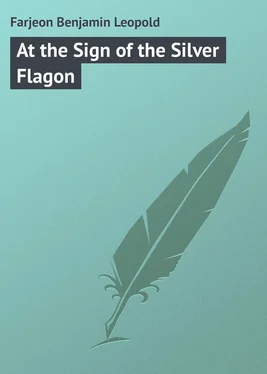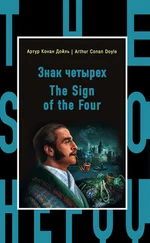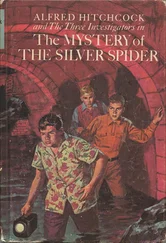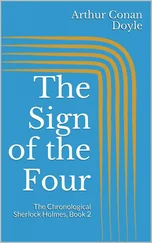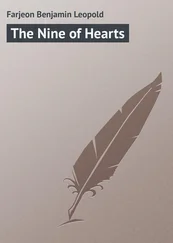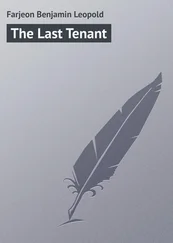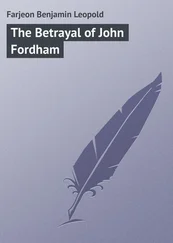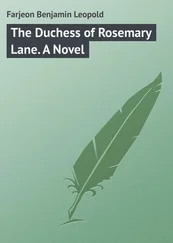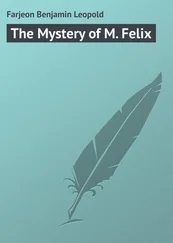Benjamin Farjeon - At the Sign of the Silver Flagon
Здесь есть возможность читать онлайн «Benjamin Farjeon - At the Sign of the Silver Flagon» — ознакомительный отрывок электронной книги совершенно бесплатно, а после прочтения отрывка купить полную версию. В некоторых случаях можно слушать аудио, скачать через торрент в формате fb2 и присутствует краткое содержание. Жанр: foreign_prose, на английском языке. Описание произведения, (предисловие) а так же отзывы посетителей доступны на портале библиотеки ЛибКат.
- Название:At the Sign of the Silver Flagon
- Автор:
- Жанр:
- Год:неизвестен
- ISBN:нет данных
- Рейтинг книги:5 / 5. Голосов: 1
-
Избранное:Добавить в избранное
- Отзывы:
-
Ваша оценка:
- 100
- 1
- 2
- 3
- 4
- 5
At the Sign of the Silver Flagon: краткое содержание, описание и аннотация
Предлагаем к чтению аннотацию, описание, краткое содержание или предисловие (зависит от того, что написал сам автор книги «At the Sign of the Silver Flagon»). Если вы не нашли необходимую информацию о книге — напишите в комментариях, мы постараемся отыскать её.
At the Sign of the Silver Flagon — читать онлайн ознакомительный отрывок
Ниже представлен текст книги, разбитый по страницам. Система сохранения места последней прочитанной страницы, позволяет с удобством читать онлайн бесплатно книгу «At the Sign of the Silver Flagon», без необходимости каждый раз заново искать на чём Вы остановились. Поставьте закладку, и сможете в любой момент перейти на страницу, на которой закончили чтение.
Интервал:
Закладка:
"All right, mates," was all he said.
Then he took a tin dish which belonged to the Chinamen, and, filling it with the earth he had dug out of the gold gutter, walked towards the creek, followed by his mates and the rightful owners. He washed the earth carefully and deftly, and with experienced hands: all of them looked on, animated by various feelings, as he swung the dish round and round. Soon the gold came into view, dotting the lessened earth brightly, like stars in a dirty sky: little by little all the earth was washed away, and the pure gold lay in a little heap in the corner of the tin dish. One of the Irishmen produced a pair of gold scales, and the gold was weighed.
"Four pennyweights to the dish," he said.
"How thick is the wash-dirt?" asked one, of him who had been below.
"About two foot and a half," was the reply.
Hurrah! It was a fortune if they could get claims on the gutter. The Chinamen waited anxiously. What were their enemies now about to do? The man who had washed the gold held it towards the rightful owner.
"M'lenty gold, John," he said, with a pleasant laugh.
Somewhat more satisfied as to the honesty of the intentions of the Tipperary boys, the Chinamen nodded their heads violently enough almost to shake them off, and found their tongues and their understanding.
"Yes, yes. M'lenty gold! Englishman welly good man! Englishman get m'lenty gold!" And pointed to some distance, with tempting fingers, to show where gold was sure to be found in larger quantities.
"All right, John," they said; "we don't want your claims. We only want to find out the lay of the gutter. There's room enough for all at present."
The Chinamen, understanding now the English language, of which they were before so ignorant, became gratefully effusive. The old man darted forward to take the four pennyweights of gold.
"Stop, though," said a Tipperary boy, the lawyer of the company. "Have you got Miners' Rights! Where's your Miners' Rights?"
Without their Miners' Rights-which, it may be necessary to explain, were parchment grants from her Majesty the Queen, to mine the soil for gold, at the rate of one pound per year per man-the claims which the Chinamen were working were not legally theirs, and could be taken from them at a moment's notice. In reply to the query, twenty-three hands were thrust into twenty-three blue dungaree bosoms, and twenty-three pieces of parchment were waved like flags of freedom triumphantly in the air. The gold was returned to the rightful owners, and the Tipperary boys marked out claims for themselves on the line of the gutter, and were fortunate enough to hit the mark. Next day more men arrived on the ground, and the gold rush having set in, in less than three months the township of Silver Creek was formed. Diggers and traders flocked there from all quarters, and a strangely mixed crew was soon assembled together.
CHAPTER II
HOW BABY OBTAINED HER SHARE IN THE STAR DRAMATIC COMPANY
Silver Creek could soon boast of its newspaper, of course; and equally as a matter of course, it could almost as soon boast of its rival newspaper. It is strange that in communities where one newspaper would languish, two are almost sure to flourish; and the Silver Creek Herald and the Silver Creek Mercury were not an exception to the rule. They led a prosperous and noisy life, and were conducted upon the usual abusive principles, with great vigour and some ability. Their establishments were in the High Street, where there were also sale-rooms, banks, hotels and restaurants, billiard-rooms, clothes and provision stores, and a store with "Pie-office" written over it. This was almost as good as the peripatetic vendor of baked potatoes, upon whose tin can was painted "The Universal Baked Potato Company (Limited)." The stores drove a roaring trade; flags waved gaily over them; a continual stream of people was flowing up and down. It was like a fair. Here were two Chinamen bearing a pole on their shoulders, in the centre of which dangled, head downwards, a pig at the end of a rope, with its four feet tied in one knot. (When the Chinaman gets to Paradise he hopes to eat roast pig for breakfast, dinner, teas and supper, through all eternity.) Here were half-a-dozen gold-diggers in great thigh-boots, dragging a jibbing-horse along for their puddling machine, cracking their whips and leaping here and there in sympathy with the antics of their wild purchase. Here were American wagons, with handsome teams of horses, and bullock-drays yoked by patient long-suffering cattle, the drivers of which were unloading their stores. Here was a negro, with his gleaming teeth, and his face alight with humour, badgering a perplexed Mongolian, and a crowd of noisy gold-diggers around them egging him on and laughing. The negro was proving by the most absolute and logical of arguments that he had a perfect right to enjoy the privileges of Silver Creek township, and that the Mongolian was an interloper-"A foreigner, sah!" and had no right there at all. The contest was an unequal one. All the sympathies of the Europeans were with the negro, whose amazing flow of natural spirits would have borne down far greater obstacles than were presented in the distressed actions and thin voice of the Mongolian. It was a peculiar feature of the goldfields that the African was everywhere welcomed, and the Mongolian everywhere scowled at. Here was a great dray creaking along, loaded with portions of the first quartz-reefing machine which Silver Creek could boast of; and all along the road were men buying boots and clothes, and picks and long and short-handled shovels, and bars of steel, and powder and fuse, calling out to one another heartily the while. It was a scene filled with life and colour.
Among the new arrivals, of whom thousands flocked into the township every day, were some dozen men and women, who came in dusty and weary with the toils of the road. They had travelled more than a hundred and fifty miles, being attracted to Silver Creek township by the news of its wonderful prosperity. They were a common-enough troop in outward appearance, and did not look like traders or gold-miners. They had with them a dray drawn by one horse-a poor weak-kneed creature, to whom existence seemed to be a burden as he toiled painfully along with his load behind him. What this load was could not be seen, for the dray had a tarpaulin over it. Upon the tarpaulin were seated three women. The first who calls for notice by virtue of her position was a stately person, probably about thirty-five years of age; her complexion was dark, and in her face was an expression, which might be said to be stamped upon it, and which represented all the tragic passions in little; she bore herself loftily in more senses than one. Her mind was a storehouse, filled with tragedy queens, intermixed with heroines of tenderer sentiment-which latter, however, were somewhat out of place; but you would have roused her to great indignation had you said so in her hearing. The second, about twenty-three years of age, was a nice-looking saucy widow, with a pretty baby in her arms. The third was a beautiful girl, of some eighteen or nineteen summers. The men, who were all much sunburnt, walked along by the side and in the rear of the dray, and when they entered High Street, peered curiously about them, and then at each other, with an air of "This will do." The eyes of one of the party, the eldest, a man of over sixty years of age, were expressive of something more than curiosity: anxiety was plainly there, but presently this vanished, and bright twinkles took their place. He rubbed his hands joyously, and smiled upon one and another.
"It looks well," he said.
He was the chief of the party, which was nothing less than a company of actors and actresses come to open the first theatre at Silver Creek. Before they started from Melbourne, they had formed themselves into a joint stock company, and agreed to divide profits in proportion to their abilities. There were twelve in the party, not reckoning the baby, and the number of shares were thirty-six. These, after much anxious discussion and deliberation, and some display of the peacock's chief attribute, were distributed as follows: -
Читать дальшеИнтервал:
Закладка:
Похожие книги на «At the Sign of the Silver Flagon»
Представляем Вашему вниманию похожие книги на «At the Sign of the Silver Flagon» списком для выбора. Мы отобрали схожую по названию и смыслу литературу в надежде предоставить читателям больше вариантов отыскать новые, интересные, ещё непрочитанные произведения.
Обсуждение, отзывы о книге «At the Sign of the Silver Flagon» и просто собственные мнения читателей. Оставьте ваши комментарии, напишите, что Вы думаете о произведении, его смысле или главных героях. Укажите что конкретно понравилось, а что нет, и почему Вы так считаете.
